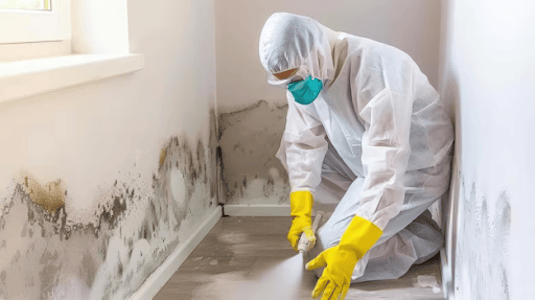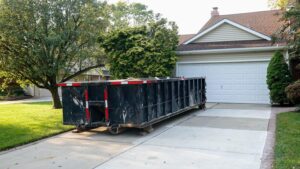How Safe Installation Practices Reduce Cracking Risks in Antioch Properties
Cracks in walls, ceilings, or foundations can be more than just an eyesore—they often signal underlying structural issues that could cost homeowners thousands in repairs. In Antioch, where soil conditions and seasonal shifts can increase the risk of building movement, safe installation practices are not just recommended—they’re essential. Proper installation methods during construction and remodeling projects can significantly reduce the likelihood of cracking and ensure long-term property durability.
Whether you’re building a new home, remodeling an existing one, or installing new systems, understanding how to reduce cracking risks is crucial. This article delves into the role of safe installation practices, how they contribute to property integrity, and why Antioch residents must prioritize them.
Why Cracks Form in Antioch Properties
Before exploring prevention techniques, it’s important to understand the root causes of cracking in structures across Antioch:
- Expansive clay soil: The Antioch area has a high concentration of clay soil, which expands and contracts significantly with moisture changes.
- Seismic activity: Being part of the Bay Area, Antioch is susceptible to minor tremors that can cause shifting.
- Poor construction practices: Subpar workmanship and shortcuts during installation can compromise structural integrity.
- Water intrusion: Improper drainage or faulty gutter systems can lead to water damage and cracking.
The Role of Safe Installation in Preventing Cracking
Safe installation practices refer to construction and renovation methods that follow building codes, use proper materials, and are performed by certified professionals. These methods are foundational to the longevity of any structure and are especially critical in Antioch due to the unique environmental challenges.
Here’s how safe installation reduces cracking risks:
1. Proper Foundation Preparation
Laying the foundation is one of the most crucial stages in the construction process. Safe practices include:
- Soil compaction to reduce shifting
- Installing vapor barriers to prevent moisture ingress
- Using steel reinforcements and quality concrete mixtures
Key takeaway: A well-prepared foundation is less likely to crack under pressure or environmental changes.
2. Correct Drywall Installation
Drywall cracks are common but preventable with skilled installation. This includes:
- Allowing materials to acclimate to room temperature
- Using the correct number of fasteners
- Applying joint compounds and tape correctly
3. Quality Plumbing and HVAC Installations
Pipes and air ducts that aren’t securely installed can cause vibrations or even leaks, leading to structural stress. Safe installation ensures:
- Proper support brackets
- Flexible connectors for expansion and contraction
- Compliance with local codes
LSI Keywords to Know
Understanding related concepts helps reinforce the importance of installation safety. Here are a few Latent Semantic Indexing (LSI) keywords naturally associated with this topic:
- Structural integrity
- Foundation settling
- Crack prevention techniques
- Building code compliance
- Moisture control
- Professional installation services
- Thermal expansion
- Seismic resistance
Table: Common Cracking Causes vs. Safe Installation Solutions
| Cracking Cause | Safe Installation Solution |
| Expansive clay soil | Soil stabilization, deep foundation systems |
| Improper drywall taping | Precision taping and sanding followed by proper curing |
| HVAC duct movement | Secure, flexible installation with room for expansion |
| Improper plumbing | Leak-resistant pipe fittings, slope-correct installations |
| Lack of seismic reinforcements | Structural retrofitting, shear wall installation |
| Water drainage issues | Gutter system setup, French drains, grading corrections |
Expert Insight
“A significant number of the structural cracks we inspect in Antioch stem from improper installations during construction or remodeling. Ensuring adherence to safe installation standards is the most cost-effective form of long-term property protection.”
— Daniel Ruiz, Certified Structural Engineer, Bay Area Building Solutions
Average Cost of Installation and Repair Services in Antioch
Understanding the cost factor helps homeowners make informed decisions. Here’s a breakdown of typical costs related to installation and crack prevention in Antioch:
- Foundation installation (per sq. ft.): $8 – $14
- Drywall repair (minor cracks): $150 – $400
- Structural crack repair (foundation walls): $500 – $3,500
- HVAC duct reinstallation: $1,000 – $3,000
- Professional inspection: $250 – $600
Although high-quality installation may seem like an added upfront cost, it significantly reduces the risk of expensive future repairs.
Best Practices for Antioch Property Owners
To keep your home crack-free, follow these safe installation and maintenance tips:
- Hire licensed contractors with experience in Antioch’s building conditions.
- Schedule routine inspections every 1–2 years.
- Use moisture barriers and sealants during installation.
- Ensure seismic compliance for all new builds and renovations.
- Avoid DIY shortcuts in foundational and structural work.
Real-World Impact: Safe Installation and Cracking in Antioch
Homeowners who have trusted professionals from Safe Installation and Cracking in Antioch report fewer post-installation issues and lower long-term maintenance costs. Their tailored solutions take Antioch’s climate, soil, and seismic considerations into account, offering homeowners peace of mind.
From proper HVAC placement to reinforced foundations, Safe Installation and Cracking in Antioch remains a trusted name when it comes to structural reliability and crack prevention.
Frequently Asked Questions (FAQ)
Q1: Can minor cracks in drywall be ignored?
A: Even seemingly insignificant cracks may be signs of deeper structural concerns. It’s best to have them inspected.
Q2: How often should I inspect my home for cracking?
A: Conduct visual checks seasonally and hire professionals annually for thorough evaluations.
Q3: Are safe installation methods more expensive?
A: Initially, yes—but they save significantly on repairs and increase your property’s value.
Q4: What permits are needed for installations in Antioch?
A: Permits vary by project. It’s essential to consult Antioch’s Building Department or hire a contractor familiar with local regulations.
Conclusion: Build Smart, Prevent Cracks
In Antioch, where environmental and geological factors increase the risk of property damage, adopting safe installation practices is not optional—it’s vital. From solid foundations to meticulous drywall work, every phase of construction must be executed with precision.
When homeowners and contractors prioritize safe techniques, they reduce cracking risks, preserve property value, and enhance safety. Whether you’re renovating or building from the ground up, don’t cut corners—cracks always cost more in the end.
Take Action Today: Partner with trusted experts like Safe Installation and Cracking in Antioch for your next project. Prioritize quality now to ensure long-term protection for your property.
Read More: Locksmith











